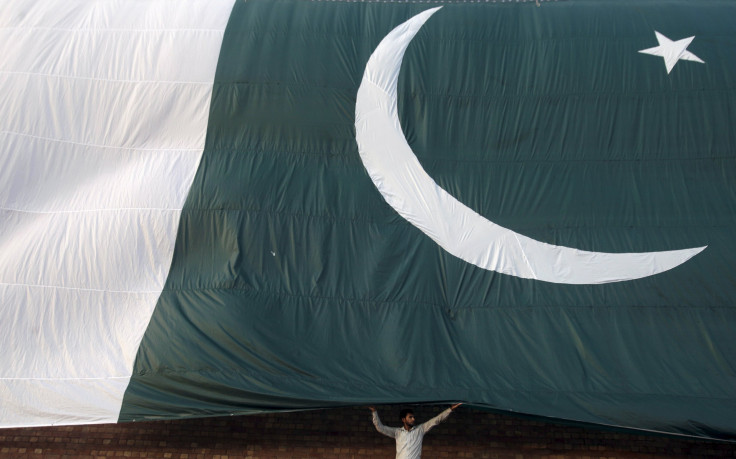China Could Turn Pakistan Into Another Sri Lanka
China could turn Pakistan into another Sri Lanka with debt-trap diplomacy by turning debt into equity and assuming control of the country's vital assets.
Last week, the country appealed to the International Monetary Fund to have its debt rescheduled.
That's the second time Pakistan has tried to reschedule its debt in the last couple of years, most of which is owed to Beijing.
According to Irina Tsukerman, a human rights and national security lawyer based in New York, Pakistanis perceive China as their "new best friend" for several reasons. One of them is that the U.S policy is shifting, positing India.
Then there's China's soft attitude about human rights and democracy and tolerance of some militancy in Pakistani circles. "In turn, the Pakistani government has put aside vocal manifestations against Beijing's Uyghur policies, " Tsukerman explained to International Business Times.
And there's Pakistan's relative isolation in Southeast Asia and lack of solid allies. Thus, China remains the primary source of financial resources and assistance. "In part because of that singular relationship, Pakistan is willing — or feels it has no choice but — to put aside concerns about debt and try to work out the solution to this issue diplomatically," Tsukerman added.
Still, there are a couple more reasons for cozying the relations between the two countries, like Beijing's view of Islamabad as an "indispensable" ally to surround its old enemy, India.
At the same time, Beijing wants to turn Pakistan into a link between western China and the Indian Ocean and, eventually, an alternative route to the Middle East oil supplies and Africa's natural resources.
That can explain why Beijing has been helping Pakistan build the China-Pakistan Economic Corridor (CPEC). It's a colossal roadway from Western China to the Indian Ocean.
In principle, the CPEC project benefits Pakistan, too. It helps the country transition from a frontier to an emerging economy, creating much-needed jobs.
China's active involvement in the project hurts Pakistan, too. First, it worsens Pakistan's corruption since it involves state-owned companies on both sides of the partnership, raising the cost of the project.
For instance, as of 2019, the cost of CPEC projects was $62 billion, up from the original value of $46 billion back in 2014.
And that makes Pakistan even more indebted to Chinese state-owned banks, which finance the project. The country's external debt took off shortly after CPEC construction began.
Rising external indebtedness arrived as the country lived beyond its means.
In 2022, Pakistan recorded a current account deficit of 4.6% of GDP, according to Trading Economics. As a result, the external debt of the country rose to $130,192 million in the second quarter of 2022 from $128,920 million in the first quarter of 2022. It's up from $99,086 million in the fourth quarter of 2018, a new record.
Moreover, Pakistan's foreign currency reserves and foreign capital flows have been depleted significantly.
That's why the country had to appeal to IMF last week, seeking to reschedule its debt but did not mention haircut.
Still, the CPEC project is far from over, and the costs of completing it keep rising. They make it very likely that Pakistan will have to reschedule its debt several times before it's over. It will share the same fate with Sri Lanka — swapping debt with equity, ultimately handing CPEC to Beijing.
That's the model China applied in rescheduling Sri Lanka's debt. It officially turned the country's Hambantota port into China's port, for 99 years, in a milestone deal that assigned China Merchants Ports Holdings — an arm of the Chinese government — a 70% stake in the Indian Ocean's prominent outpost.
Like CPEC, the Hambantota port construction began with loans from China's state-owned banks. But when Sri Lanka failed to repay the loans, Beijing converted these loans to equity — essentially turning Sri Lanka into a "semi-colony" subtly.
Still, Michael Edesess, managing partner and special advisor at M1K LLC, doesn't subscribe to the thesis that China's loans to developing countries are "debt-trap diplomacy." Instead, he considers it "little more than a manifestation of the anti-China bias and slurs that have become so common recently in Western politics and media."

© Copyright IBTimes 2024. All rights reserved.












